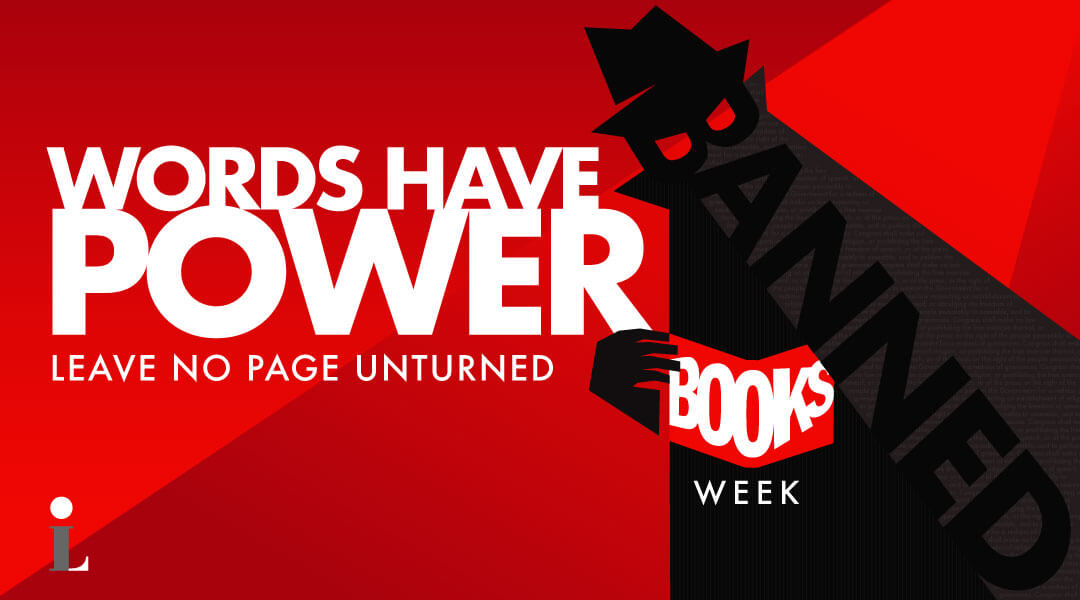Banned Books Week is an annual celebration of the freedom to read. It’s sponsored by the Office of Intellectual Freedom, part of the American Library Association.
When people first hear about Banned Books Week, they often ask one of two questions: “Who doesn’t have the freedom to read?” and “Are books really banned?” Neither answer is quite as straight-forward as you might think.
When we talk about the freedom to read, we’re not just talking about being allowed to choose any book off the shelf and read it for fun. We’re talking about unrestricted access to information and the freedom to seek and express ideas, even information and ideas that some people might find objectionable or offensive.
When we talk about banned books, we’re not really talking about books that are completely restricted, absolutely not allowed, or destroyed so no one can read them ever.
We are talking about challenges to books and other resources. We’re talking about attempts to restrict other people’s access to materials that another person (or persons) find objectionable. (See this list of books most frequently challenged in 2020.)
Access, of course, is central to our library’s mission. We make it easy to get a library card and encourage our users to check out the wide variety of materials we have available, including online resources.
In addition, Carnegie Library of Pittsburgh strives to reflect the diversity of our communities and to provide for the variety of needs and interests members of our communities have. One of the ways we do this is through our collections. It’s even written into our Collection Development Policy:
Recognizing that our service area incorporates individuals of all ages who represent a multiplicity of racial and ethnic backgrounds, economic and educational levels and physical and mental abilities, Carnegie Library of Pittsburgh builds collections that mirror and support this diversity. The collections include materials and resources that reflect a variety of political, economic, religious, social, minority and sexual issues and support intellectual freedom by providing free access to all expressions of ideas through which any and all sides of a question, cause or movement may be explored.
We know that providing resources that reflect diverse backgrounds and perspectives means that there will be some things in our collection that make some people uncomfortable. (And other things that may make other folks uncomfortable—because one person’s deeply held belief might be another person’s objectionable opinion.)
That’s why we have ways for our users to request that we reconsider some of our choices.
First, you can talk with a librarian at your local library. Let them know what your concerns are.
They’ll share their thoughts on why we have the item, what value they think it offers to others, and perhaps even offer options for how you can find alternative titles that the library offers that are more appealing and appropriate for you and/or your family.
If that doesn’t fully address your concerns, though, we have a process called a Materials Reconsideration Request. It’s a form that gives you the opportunity to share why you think an item doesn’t belong in our collection.
Once we receive the form, we convene a committee of three librarians to review the request and the item in question. Each member of the committee will read/watch/listen to the item in its entirety.
We also read as many professional reviews as we can find and consider other information about the item. We use all of this information to inform our discussion about the request for reconsideration and whether (and where) the item in question belongs in our collection. Once we’ve made our decision, we send a letter to the person who initiated the request explaining the result.
Do we look forward to receiving reconsideration requests? Not really. Those are difficult conversations to have and sometimes require us to read/watch/listen to something that doesn’t appeal to our personal taste either. But believe it or not, these requests can actually be seen as positive.
Curious about why we think that? Check out this blog post.
You can sign up for a free library card here. If you are new to our eResources, check out these tutorial videos on how to get started.
Looking for a good book, album, movie or TV show? We’re happy to recommend them to you! Use this Personalized Recommendations form to send us some information about what you like and we’ll curate a list just for you.
If you have any additional questions, you can contact a librarian through Facebook, Instagram or Twitter. You can also call us at 412.622.3114 or email us at info@carnegielibrary.org.

